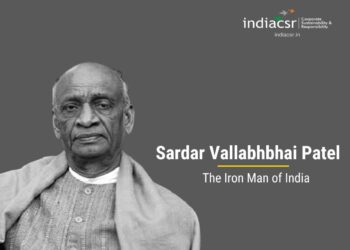Introduction
“Viksit Bharat” translates to “Developed India,” a vision that encompasses economic growth, social equity, technological advancement, and environmental sustainability. This vision aims to transform India into a nation where every citizen enjoys a high standard of living, access to quality education and healthcare, robust infrastructure, and ample opportunities for personal and professional growth. Achieving this ambitious goal requires a multifaceted approach that addresses various sectors and challenges while leveraging the nation’s strengths and potential.
What is Viksit Bharat 2047
“Viksit Bharat 2047” is an ambitious vision set forth to transform India into a developed nation by the year 2047, marking the centenary of India’s independence. This vision encapsulates a holistic approach towards economic prosperity, social equity, technological advancement, environmental sustainability, and robust governance. It aims to position India as a leading global power, ensuring that every citizen enjoys a high quality of life and ample opportunities for personal and professional growth.
Economic Growth and Industrial Development
A core component of Viksit Bharat is robust economic growth driven by industrial development, innovation, and entrepreneurship. The government has been focusing on creating a conducive environment for businesses through policy reforms, ease of doing business, and investment in infrastructure. Initiatives like Make in India, Startup India, and Atmanirbhar Bharat aim to boost manufacturing, support startups, and promote self-reliance.
Industrial development must be complemented by a skilled workforce. The emphasis on skill development through programs like Pradhan Mantri Kaushal Vikas Yojana (PMKVY) and the establishment of Industrial Training Institutes (ITIs) is crucial. These efforts ensure that the youth are equipped with industry-relevant skills, making them employable and ready to contribute to the nation’s growth.
Social Equity and Inclusive Growth
For India to be truly developed, economic growth must be inclusive, ensuring that the benefits reach all sections of society. Social equity involves reducing disparities in income, education, healthcare, and opportunities. Programs aimed at poverty alleviation, rural development, and social justice are integral to this vision.
Education and healthcare are fundamental pillars of social equity. Universal access to quality education through initiatives like Samagra Shiksha and digital learning platforms can bridge the gap between urban and rural areas. Similarly, healthcare initiatives like Ayushman Bharat, which provides health insurance to millions of underserved citizens, are steps towards a healthier nation.
Technological Advancement and Digital India
Technological advancement is a key driver of development. The Digital India campaign aims to transform India into a digitally empowered society and knowledge economy. This includes improving digital infrastructure, increasing internet penetration, and promoting digital literacy.
Technology also plays a crucial role in governance through e-governance initiatives, making public services more accessible and efficient. The use of technology in agriculture, healthcare, and education can lead to significant improvements in these sectors, contributing to overall development.
Environmental Sustainability
A developed India must also be a sustainable India. Environmental sustainability involves managing natural resources responsibly, reducing pollution, and combating climate change. The adoption of renewable energy sources, such as solar and wind power, is essential to reduce dependence on fossil fuels and lower carbon emissions.
The government has launched various initiatives to promote sustainability, including the National Action Plan on Climate Change (NAPCC) and the Swachh Bharat Abhiyan, which aims to clean up the country and improve sanitation. Sustainable agricultural practices and water conservation efforts are also critical to ensuring food security and environmental health.
Infrastructure Development
Infrastructure development is the backbone of a developed nation. This includes physical infrastructure like roads, bridges, railways, and ports, as well as social infrastructure like schools, hospitals, and housing. The government’s focus on building smart cities, improving rural infrastructure, and investing in public transportation networks is essential for balanced regional development and economic growth.
Global Partnerships and International Cooperation
Achieving Viksit Bharat also involves fostering global partnerships and international cooperation. Engaging with other nations through trade agreements, cultural exchanges, and collaborations in science and technology can accelerate India’s development. These partnerships can bring in investment, innovation, and best practices from around the world.
Challenges and the Way Forward
While the vision of Viksit Bharat is inspiring, it comes with its own set of challenges. These include addressing the socio-economic disparities, ensuring effective implementation of policies, and dealing with resistance to change. Corruption, bureaucratic inefficiencies, and political instability can also hinder progress.
To overcome these challenges, there must be a collective effort involving the government, private sector, civil society, and citizens. Transparency, accountability, and good governance are essential. Continuous monitoring, evaluation, and course correction can ensure that the initiatives remain effective and aligned with the development goals.
Viksit Bharat: A Vision for a Developed India
Introduction
“Viksit Bharat” translates to “Developed India,” a vision that encompasses economic growth, social equity, technological advancement, and environmental sustainability. This vision aims to transform India into a nation where every citizen enjoys a high standard of living, access to quality education and healthcare, robust infrastructure, and ample opportunities for personal and professional growth. Achieving this ambitious goal requires a multifaceted approach that addresses various sectors and challenges while leveraging the nation’s strengths and potential.
Economic Growth and Industrial Development
A core component of Viksit Bharat is robust economic growth driven by industrial development, innovation, and entrepreneurship. The government has been focusing on creating a conducive environment for businesses through policy reforms, ease of doing business, and investment in infrastructure. Initiatives like Make in India, Startup India, and Atmanirbhar Bharat aim to boost manufacturing, support startups, and promote self-reliance.
Industrial development must be complemented by a skilled workforce. The emphasis on skill development through programs like Pradhan Mantri Kaushal Vikas Yojana (PMKVY) and the establishment of Industrial Training Institutes (ITIs) is crucial. These efforts ensure that the youth are equipped with industry-relevant skills, making them employable and ready to contribute to the nation’s growth.
Social Equity and Inclusive Growth
For India to be truly developed, economic growth must be inclusive, ensuring that the benefits reach all sections of society. Social equity involves reducing disparities in income, education, healthcare, and opportunities. Programs aimed at poverty alleviation, rural development, and social justice are integral to this vision.
Education and healthcare are fundamental pillars of social equity. Universal access to quality education through initiatives like Samagra Shiksha and digital learning platforms can bridge the gap between urban and rural areas. Similarly, healthcare initiatives like Ayushman Bharat, which provides health insurance to millions of underserved citizens, are steps towards a healthier nation.
Technological Advancement and Digital India
Technological advancement is a key driver of development. The Digital India campaign aims to transform India into a digitally empowered society and knowledge economy. This includes improving digital infrastructure, increasing internet penetration, and promoting digital literacy.
Technology also plays a crucial role in governance through e-governance initiatives, making public services more accessible and efficient. The use of technology in agriculture, healthcare, and education can lead to significant improvements in these sectors, contributing to overall development.
Environmental Sustainability
A developed India must also be a sustainable India. Environmental sustainability involves managing natural resources responsibly, reducing pollution, and combating climate change. The adoption of renewable energy sources, such as solar and wind power, is essential to reduce dependence on fossil fuels and lower carbon emissions.
The government has launched various initiatives to promote sustainability, including the National Action Plan on Climate Change (NAPCC) and the Swachh Bharat Abhiyan, which aims to clean up the country and improve sanitation. Sustainable agricultural practices and water conservation efforts are also critical to ensuring food security and environmental health.
Infrastructure Development
Infrastructure development is the backbone of a developed nation. This includes physical infrastructure like roads, bridges, railways, and ports, as well as social infrastructure like schools, hospitals, and housing. The government’s focus on building smart cities, improving rural infrastructure, and investing in public transportation networks is essential for balanced regional development and economic growth.
Global Partnerships and International Cooperation
Achieving Viksit Bharat also involves fostering global partnerships and international cooperation. Engaging with other nations through trade agreements, cultural exchanges, and collaborations in science and technology can accelerate India’s development. These partnerships can bring in investment, innovation, and best practices from around the world.
Challenges and the Way Forward
While the vision of Viksit Bharat is inspiring, it comes with its own set of challenges. These include addressing the socio-economic disparities, ensuring effective implementation of policies, and dealing with resistance to change. Corruption, bureaucratic inefficiencies, and political instability can also hinder progress.
To overcome these challenges, there must be a collective effort involving the government, private sector, civil society, and citizens. Transparency, accountability, and good governance are essential. Continuous monitoring, evaluation, and course correction can ensure that the initiatives remain effective and aligned with the development goals.
Conclusion
Viksit Bharat is not just a vision but a mission that requires dedication, innovation, and collaboration. It is about creating a nation where every individual has the opportunity to thrive and contribute to the country’s progress. By focusing on economic growth, social equity, technological advancement, environmental sustainability, and robust infrastructure, India can achieve this vision and emerge as a global leader. The journey towards Viksit Bharat is challenging, but with collective effort and unwavering commitment, it is an attainable goal.
FAQs on Viksit Bharat 2047
1. What is Viksit Bharat 2047?
Viksit Bharat 2047 is an ambitious vision to transform India into a developed nation by the year 2047, marking the centenary of India’s independence.
2. What are the key components of Viksit Bharat 2047?
The key components include economic prosperity, social equity, technological advancement, environmental sustainability, robust infrastructure, and good governance.
3. How does the vision aim to achieve economic prosperity?
By elevating India to a $10 trillion economy through industrial growth, innovation, and entrepreneurship under initiatives like Make in India and Atmanirbhar Bharat.
4. What steps are being taken to enhance social equity?
The vision focuses on universal access to quality education and healthcare, poverty alleviation, and inclusive development programs.
5. How is the government addressing skill development?
The government is investing in skill development programs like Pradhan Mantri Kaushal Vikas Yojana (PMKVY) and establishing advanced training institutes.
6. What role does technology play in Viksit Bharat 2047?
Technology is crucial, with initiatives like Digital India aiming to create a digitally empowered society and knowledge economy, enhancing efficiency and innovation.
7. What measures are included for environmental sustainability?
Measures include promoting renewable energy, reducing carbon emissions, and implementing sustainable agricultural practices through initiatives like the National Action Plan on Climate Change (NAPCC).
8. What is the vision for infrastructure development?
The vision includes developing robust physical and social infrastructure, such as smart cities, transportation networks, and improved rural infrastructure.
9. How will governance be improved under Viksit Bharat 2047?
By establishing transparent, accountable, and efficient governance systems that ensure justice and equality for all citizens.
10. What is the role of global partnerships in achieving Viksit Bharat 2047?
Global partnerships are crucial for bringing in investment, innovation, and best practices through trade agreements, cultural exchanges, and scientific collaborations.






















